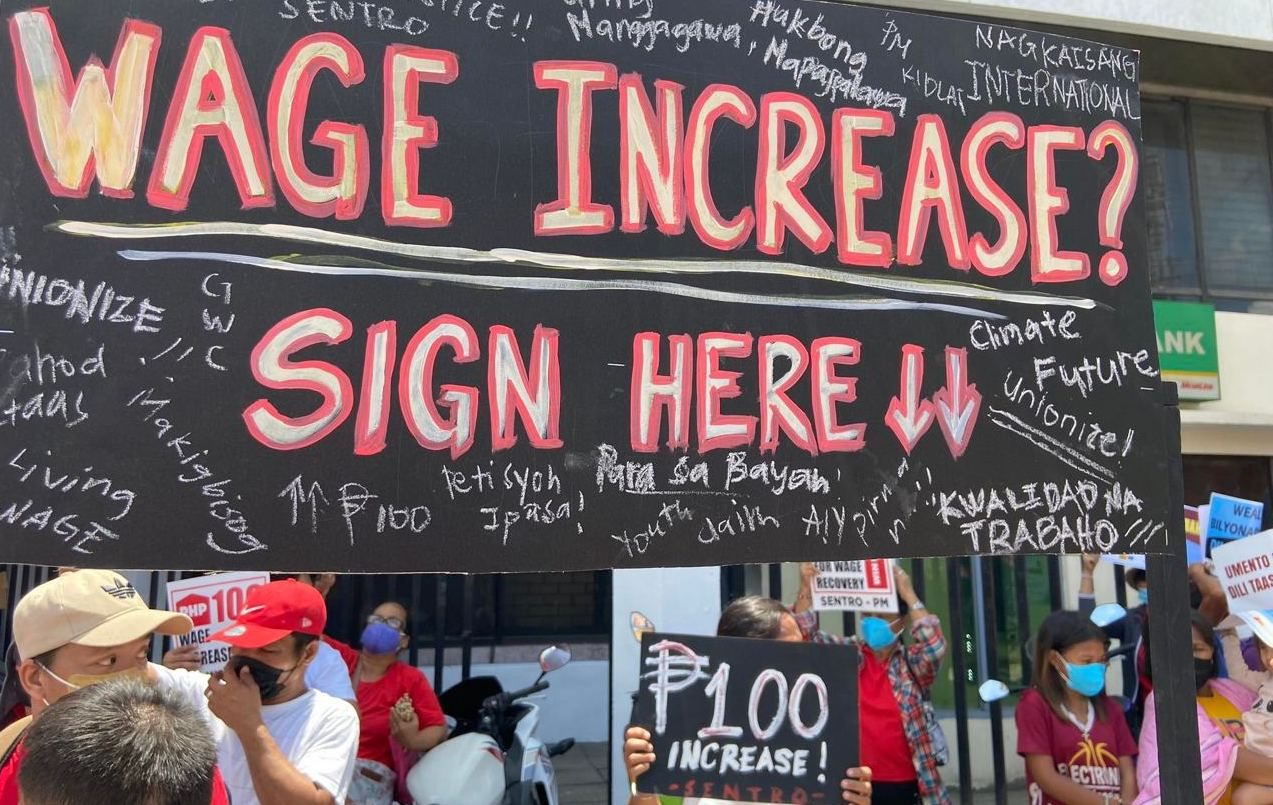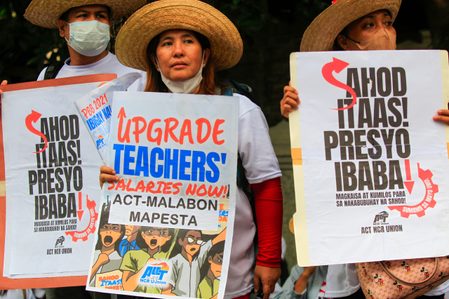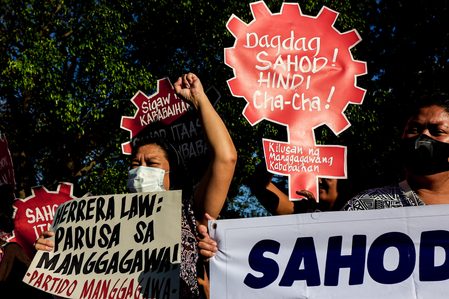SUMMARY
This is AI generated summarization, which may have errors. For context, always refer to the full article.

MANILA, Philippines – The popular call to raise wages of minimum wage earners may actually hurt the poor – the same sector thought to benefit from the move.
The Senate on Monday, February 19, unanimously approved on third and final reading the bill mandating a P100-daily pay increase for minimum wage earners in the country.
Who doesn’t want higher pay amid inflation?
While deemed a popular measure, economists have raised the alarm over its unintended consequences, especially for those who are in the informal sector and are not covered by the wage increase.
The Foundation for Economic Freedom (FEF) underscored four reasons why they oppose the move.
“We are not against wage increases but we urge the Senate not to tamper with the existing mechanism of regional wage boards to adjust wages if needed. Regional wage boards take into account the interests of both employers and workers and the different cost and employment situations of various regions,” FEF said in a recent statement.
It will ‘turbocharge’ inflation
FEF said the wage increase will result in higher prices of goods, as additional across-the-board wage increase will push companies to charge higher prices.
“The subsequent wage-price spiral will trigger an erosion of the people’s purchasing power, causing widespread demands for future rounds of wage hikes,” FEF said.
It will raise interest rates
With inflation jumping, the Bangko Sentral ng Pilipinas may be forced to hike interest rates.
This will result in people shelling out more to pay for housing and car loans and credit card charges.
FEF added that increased interest rates will also force companies to reduce investments and cut back on employment.
It doesn’t take into account varying cost factors
The proposal also does not take into account the different cost factors and employment situations across different regions.
FEF warned that many small businesses may close shop or lay off workers.
The informal sector won’t be covered
FEF said the proposal doesn’t cover informal and seasonal workers, fishermen, gig economy workers, and market vendors, who will now suffer from the inflationary impact of legislated wage increases.
What to do now?
Instead of a nationally-legislated wage increase, FEF urged the government to liberalize food imports by reducing the tariffs on rice from 35% to 10% and abolishing or vastly expanding the import quotas for corn, chicken, pork, and fish.
“Liberalizing food imports will see an immediate fall in the price of food, thereby increasing the purchasing power of all Filipinos, whether formally or informally employed and whether senior citizens or babies.”
Speculative?
Those who are in favor, however, view these warnings as speculations.
IBON Foundation executive director Sonny Africa said wage hikes can lead to economic activity, as workers who earn more will spend more, unlike businesses that will not necessarily reinvest earnings.
Africa, as well as Makabayan lawmakers at the House, argued that higher earnings of workers will be spent on small businesses, and effectively spur economic growth.
Africa said that according to their estimates, large and medium firms will take just a 6.7% cut in profits, while small and micro businesses may take as much as a 7.9% cut.
IBON Foundation estimates that a family of five in Metro Manila needs P1,193 a day or P25,946 a month to live decently. Currently, Metro Manila’s minimum wage is just P610 a day. – with reports from Michelle Abad/Rappler.com
Add a comment
How does this make you feel?







![[EDITORIAL] Apat na taon na lang Ginoong Marcos, ‘di na puwede ang papetiks-petiks](https://www.rappler.com/tachyon/2024/07/animated-bongbong-marcos-2024-sona-day-carousel.jpg?resize=257%2C257&crop=280px%2C0px%2C720px%2C720px)
![[In This Economy] Delulunomics: Kailan magiging upper-middle income country ang Pilipinas?](https://www.rappler.com/tachyon/2024/07/in-this-economy-upper-middle-income-country.jpg?resize=257%2C257&crop=421px%2C0px%2C1080px%2C1080px)

![[EDITORIAL] Marcos Year 2: Hilong-talilong](https://www.rappler.com/tachyon/2024/07/animated-bongbong-marcos-2nd-sona-carousel.jpg?resize=257%2C257&crop=136px%2C0px%2C720px%2C720px)
![[Newspoint] A fighting presence](https://www.rappler.com/tachyon/2024/07/thought-leaders-a-fighting-presence.jpg?resize=257%2C257&crop=441px%2C0px%2C1080px%2C1080px)
There are no comments yet. Add your comment to start the conversation.